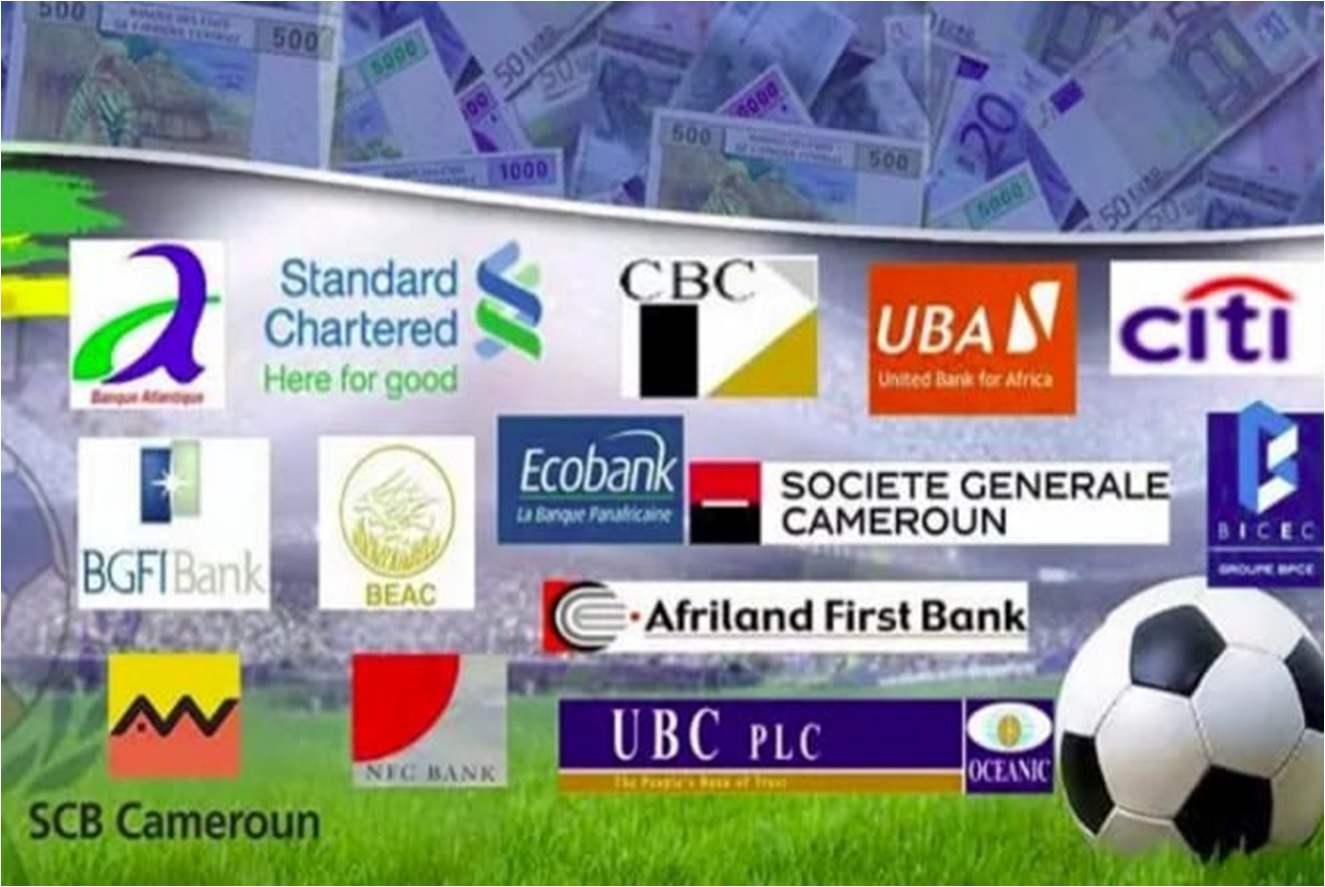Digitalisation in the Cameroon banking and financial sector

Banks and other financial institutions are the most important businesses in the world. The failure of a bank is more catastrophic than the failure of a retail store. Cameroon’s financial system is the largest in the CEMAC region. The Financial and banking sector reforms initiated in the country as part of economic reforms since the 90s with the restructuring of state-owned banks, has brought about substantial changes in the structure of banking, microfinance and financial markets environments.
The reforms in the banking and financial sector included liberalization of interest rate, elimination of administrative credit allocation; strengtheningthe Central Bank (BEAC) role in regulating and supervising financial institutions; restructuring of State-owned banks and allowing the entry of foreign and local players into the market. While deregulation opened up new opportunities particularly for banks and Microfinance institutions, liberalization intensified competitionin the banking industry by opening the markets to new foreign and private sector banks and any bank that failed to embrace digitalization will be left behind.
Digitalization is playing a vital role in shaping Cameroon’s banking scenario. Digital transformation is directly influenced by the availability of Smartphones and the availability of 3G and 4G networks.Over the years, especially in the later part of the 21thcentury, the Cameroon Banking Sector has undergone fast growth and with the advent of technological changes, Cameroon banks are adopting to the new changes in the banking environment.Traditionally, banking was viewed as a solid and slow-moving industry. Banking today is an exciting, fast-moving, around-the-clock, around-the-world activity.
Before examining the benefits of digitalization to the Cameroon banking and financial sector, it is necessary to explain the problems or weaknesses of the Cameroonian banking and financial sector in order to better understand how digitalization of the banking sector can help solve some of these problems.The problems or weaknesses of the Cameroonian banking and financial sector are:
- Low level of financial inclusion:financial inclusionmeans that individuals and businesses have access to useful and affordable financial products and services that meet their needs. Financial inclusion is a key enabler to reducing poverty and boosting prosperity. According to recent statistics, in Cameroon, a single bank branch is serving 135000 persons and few automatic teller machine and electronic wallets. This is as a result of the fact that the extension policy of banks before now were poor. The non-diversification of financial products and the role played by the informal financial system (tontines,njangi).
- Deficit in the financing of the economy by banks and Micro finance institutions (MFI): whereas there is excess liquidity in banks in Cameroon. The portion reserved for loans in the portfolio of banks is very insignificant. In 2009, only 41% of the assets were allocated to loans, and long term loans represented only 2,5%; Banks mostly finance important or big enterprises, small-size enterprises are left out; Non bankable projects which play a significant role in the economy; this problem is made worst because the nature of the deposits, more than 75% are short term deposits, thus it is difficult for banks to borrow short and lend long. Also the absence or inconsistency of collaterals or securities and the fact that the risk of default is very high (less glorious past); also relative reliability of financial statements presented; Lack of managerial ability on the part of the promoters; Slowness of the judicial system in the recovery by banks and MFI of the guarantee; another crucial issue here is the high rate of non-performing loans in MFI.
- Deficit in corporate governance: Some banks and MFI in Cameroon are experiencing provisional administration and liquidation due to bad management and the fact that the ratio of loansto be granted to the managers, shareholders is not respected; also internal control is not effective in most banks and micro finance institutions. Some other causes of this problem include the presence of non-professionals in MFI; Many MFI do not comply with the risk division ratio; and the government is streamlining the microfinance sector (administrative controls).
- The place of informal finance: the informal finance sector result to very high lending rate and a Fertile ground for money laundering. Laundering means acquiring, owning, possessing or transferring any proceeds (of money) of crime or knowingly entering into any transaction related to proceeds of the crime either directly or indirectly or concealing or aiding in the concealment of the proceeds or gains of crime, within or outside Cameroon. It is a process for conversion of money obtained illegally to appear to have originated from legitimate sources.
- Narrowness and disintegration of the financial market in Central Africa: this is because of the absence of risk capital schemes and the fact that the regulator is not self-financing.The state spends a lot of money to finance the regulator. Also the Coexistence of two stock markets and two regulators in CEMAC. All of these affect our financial system
Traditional banking that existed in the past had so many short comings and could not provide adequate solutions to some of these problems. Traditional banking is what has existed for many years and is what many people were very much familiar with. This refers to a physical bank, that is, a bank branch office where client go there in order to meet physically with their bankers and to carry out transaction, traditional bank location allow customers to access bank accounts, deposits and withdrawal funds, pay bills, apply for loans and more, in this case, there is a need for there to be physical contact between the banker and the customer.
These physical bank locations are fully staffed with knowledgeable employees ranging from teller, to loan officers. Customers normally have direct contact with the bank employees. Their functions are basically the normal day-to-day banking transactions which include cashing a cheque or any other commercial paper, withdrawing funds from accounts, opening new accounts, and applying for loans. This method of banking is considered an orthodox view of banking scene in which banks entirely concentrated on purely traditional methods without considering technological developments and the now famous digital or electronic banking trend.
Following the development of ICT, characterized by more usage of computers, telephones and other electronic methods. The mode of life of the average bank customer in Cameroon is gradually changing, there is more internet accessibility and time management is becoming even more paramount. Because of these, commercial banks in both develop and developing countries like Cameroon have modified the way banking is done.
Thus the drift towards ICT based banking technique (digitalbanking). With electronic banking, it implies that the banker sees less of their customers and do not needs to come or have direct contact with their customers before any transaction can be carry out. The number of customers who are usingdigital or online banking as their prefer methods of dealing with their finances is growing rapidly in Cameroon.
Digitalization is spreading more and more to many sectors in Cameroon. It has become vital for any business wishing to get closer to its customers and actually is the perfect tool for customers’ attraction and retention. This is the exact case in other African nations where digitalization is a boost palliating shortcoming in quality of service provided. Cameroon’s technology is going through a transformation as various sectors indeed migrate toward digitalization and the banking industry cannot be left out.
This silent transformation is gradually taking shape and imposing itself to various targets. It is positive evolution and it has today become a must for banks and other financial institutions. It appears that customers have adapted to the change which is both cost-effective and time-saving for them and which is beneficial to both the banks and their customers. “Digitization is the future of Cameroonian banking,” said Bouchra Geawhari as if predicting actual events. However, ‘seeing how things are moving, digitalization will not only be banking’s future but it will impact also on other financial services and sectors of activity in Cameroon as the latter will have to take this path to improve their services and boost their activities.
Digitalization is now a reality in Cameroon’s finance industry. Its impact on interactions between banks and their clients cannot be denied. It has led to the disappearance of constrains that are link to working hours or days of which the bank open. The customer can realise his or her operations at any time. Digitalization reduces the importance of geographical factors in the production of financial services. The distance does not separate the customer from his or her bank because the client can still dialogue with the bank (that is obtain information that he or she is looking for at any point in time)
The question however is to know if digitalization is a threat to employment? Truly, modernizing tools and services will surely take its toll on jobs. Therefore, a re-appropriation of human resources will be necessary to overcome issues arising from this modernization. The latter must align with social fabric and structure. It is believed that the transformation must be gradual but also take into account direct employment, or this might lead to an imbalance that will affect social economy. As said earlier, fact remains that digitalization helps financial institutions process their transaction and serve clients more rapidly. With the proliferation of digitalization, banking operations such as fund transfer, account opening, bill payment, getting account statement, getting ATM card, debit card, credit card, cheque book, loan details etc., can be performed without visiting bank branches. The influence of digitalization in banking sector has potential to reduce human intervention and make most of the job redundant. Employers need to ensure that they are equipping the workforce with the right skill, as well as investing in the right talent.
Due to digital transformation, some current jobs will be taken over but more will be created. Banking sector will provide huge opportunity in technology related jobs such as cyber security specialist, credit analyst, robot programmer, block chain architect and process modeler expert, and delivery manager will be more in demand. Thus employers need to upgrade their skills to appreciate the role of analytics in each banking function. Banking sector will hire the candidate with required skill set. IT professionals may have an edge here and they may have far future in banking sector.
There are “Made in Cameroon” apps that currently let users conduct financial transactions or operations safely using mobile devices such as phones or tablets. These innovations of startups like Iwomi Technologies enabled the Commercial Bank of Cameroon to open the very first ATMs to receive deposits. Ecobank Cameroon has launched its digital app dubbed ‘Ecobank Mobile’. The application introduced since February 2017, enables customers to send and receive money instantly across 33 African countries. SG Cameroon Connect is a mobile application that allow access via smartphone, to your bank in full mobility 24/7 and to carry out transactions.Another example is that of United Bank of Africa’s subsidiary which launched an online banking service in the country.
These are just a few examples. some of these apps can be downloaded from the AppsStore and Play store. Most banks top managers have explained their bank’s ambition to digitize the country banking system. Beyond this, digitalization fosters new partnerships as both businesses and financial institutions understand its importance for their profits. The concern now is to know if these firms will rely on the expertise of Cameroonian youth to tackle job losses resulting from the irreversible change. Will they trust Cameroonian startups whose performances will surely impact the Gross Domestic Productwhile creating new jobs?
These are the innovations spurred by banking’s digitalization over the past few years in Cameroon. The transformation now allows people with a bank account to travel all over the country having access to their accounts, via their smartphones and tablets. Well, briefly put, digitalization gets populations closer to banks and can also help solve the problem of low level of financial inclusion.
Before, bank customers especially salary earnerssuffered long queues in front of tellers to get their salaries. They were forced to bear the not always so cheerful face of tellers or account managers for other transactions. However, things got a little better when numerous ATMs were placed in various neighborhoods.The customer therefore has the possibility of quickly and easily realise banking operations from his home, and everywhere worldwide provided there is the internet connection or he possesses electronic gadgets, the advantage here is that digital banking save time and avoid queuing.
Many banksnow have Appsenabling their customers to perform multiple transactions from their smartphone or tablet. Wire transfers, money transfer from current to savings account, from current account to mobile money account and vice versa, submit a checkbook request, check account statement, get instant notifications about transactions, etc.
In Cameroon, digitalization of banking services helps improve the rate of bankarization. As a result of digitalization, banks can carry out various banking operations, safely and remotely, while saving both time and cost. The transformation benefits both banks and their customers. Those who usually argue for digitalization of the banking sector affirm that it is faster, better and less onerous when compare to traditional banking. Digitalization is an ongoing future of Cameroonian banking and financial sector.
By
Ayuk Takemeyang
The Internationalist│ Masters in Banking, Money and International Finance (IRIC-University of Yaounde II) PhD ongoing (IRIC-University of Yaounde II)












































